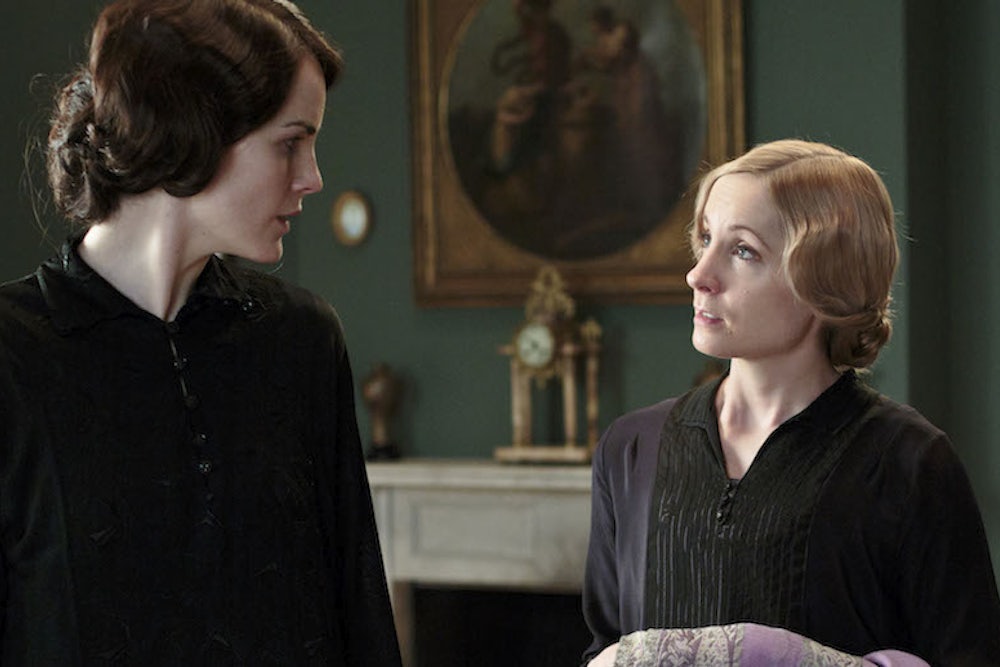“Downton Abbey” has always been lighter than the prestige TV it sometimes gets lumped in with, powered more by saucy intrigue and charming banter than any real dramatic stakes. And until its last eight minutes, this week’s episode was classic Downton. (Spoilers ahead, obviously.) The servants prepare for a house party, newly-widowed Lady Mary begins a flirtation with a visiting lord, and the most contentious issue is whether a visiting singer should be asked to dine with the family.
And then, as everyone gathers upstairs for a performance, one of the most beloved characters is punched in the face, dragged through the servant’s quarters, and raped.
The scene was shocking and brutal and difficult to watch. (When the episode aired in Britain last fall, the network received dozens of complaints.) That makes sense—depictions of rape should be uncomfortable. But the assault on Anna, a lady’s maid played by Joanna Froggatt, frustrated me more than anything else on television in a long time. It’s not only that I have TV-rape fatigue, after a year where violence against women seemed de rigueur onscreen. After three years of forgotten plot twists and casually discarded characters, “Downton Abbey” has lost my trust in its ability to treat a storyline like this with anything approaching nuance.
Of course, the British import hasn’t always been cheerful. Two characters died last year, after the actors decided to leave for the movies; the second season took place during the First World War, and was full of hospital beds and burn victims and a pervasive gloom. But the tragedy has always been tempered by the show’s gentle optimism, and filtered through historical distance. The series’ best twists—a handsome Turk dying mid-coitus—are too outlandish to be properly dark, and there’s never been any real violence.
And so Anna’s rape seemed taken from another, grittier show. There’s a cheap heavy-handedness to the staging: The camera keeps toggling between the attack to the party upstairs, where the Grantham family, their guests, and their servants listen to a renowned opera singer. Puccini alternates with Anna’s screams. Her husband Bates wonders aloud where she is, in a clunky attempt at dramatic irony. (“Maybe she’s fallen asleep?”) Only after the episode’s other storylines are tidily resolved—Lord Grantham won back his money at cards; Lady Mary gently turns down her new suitor—do we return to Anna, her dress ripped and her face bruised.
Anna is the show’s most wholly decent character—“incorruptible,” a fellow servant calls her—and she’s spent the last few seasons loyally standing by her husband’s side and worrying about him. Between Bates’s evil ex-wife and his jail sentence for killing his ex-wife, the couple have had little chance to be happy. (When they are, as in last week’s premiere, they become almost nauseatingly cute.) Now she’s afraid that if Bates finds out, he’ll kill her rapist and be sent back to jail. And so when she decides to keep what happened a secret—a choice that’s sadly realistic for the time period and even for women today—it's one more burden she will silently endure for her husband's sake, just the latest obstacle placed in the couple’s path.
If “Downton” was a different sort of show—one that didn’t offer its history lessons only in tidy packages—this might be a chance to see more of the texture of life for female servants in 1920s England, where rape was prevalent and options for recourse were slim. Instead, it’s one more queasy instance of rape as plot catalyst.
